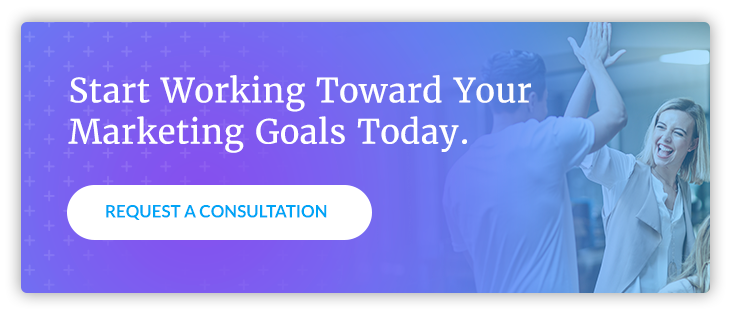
How Does Working With an Employee-Owned Company Benefit You?

Why is digital marketing agency turnover so high? One reason is that the marketing industry in general is highly competitive: if employees don’t believe they’re being paid fairly for their contributions or don’t feel they have room to grow in their careers, they’ll seek out other opportunities.
As an employee-owned company, Kuno Creative has a clear advantage. We believe in this business model because it aligns closely with our core values of being proactive, taking ownership and being team-oriented. As employee owners, every Kuno employee has a stake in the success of our clients, which directly impacts the success of our company.
While employee ownership is a strong incentive for our employees, it also has significant benefits for our clients. Here’s what you should know and why that should factor into your decision.
How Do Employee-Owned Companies Work?
An employee-owned company, or Employee Stock Ownership Program (ESOP), is essentially a retirement plan that allocates stock to employees.
Although it’s governed by some of the same laws as a 401(k) plan, it doesn’t require employees to make out-of-pocket contributions. At Kuno, our employees become part of this stock ownership plan on day one. ESOP contributions are tax-deductible, and employees pay no tax on the contributions until they leave the company or retire, when they can sell their stock back to the company.
Employee-owned companies are becoming increasingly popular, especially in certain industries; there are more than 6,500 ESOP companies in the United States and more than 10 million employee owners, according to The ESOP Association. They’re common for closely-held companies, making it easier for a founder or primary shareholder to retire without negatively impacting employees.
What Are the Benefits of an Employee-Owned Company?
Greater stability and consistency of services
Partnering with a marketing agency is typically a long-term commitment. While you may be looking for help with a specific project, such as a website redesign or a series of videos, you’ll see the biggest benefits when that project is part of a larger digital marketing strategy.
It takes time and close collaboration to execute an effective strategy that attracts quality prospects, converts them into customers and turns those customers into brand ambassadors. It’s much more difficult when your marketing team is constantly changing due to high employee turnover. When you work with an employee-owned company, you build relationships with marketing professionals who have a vested interest in your success.
A study by the Rutgers School of Management and Labor Relations and the Employee Ownership Foundation found ESOP companies are up to four times more likely to retain employees and less likely to make pay cuts.
Better industry expertise
For a marketing agency, greater stability leads to stronger expertise because the same employees tend to work with the same clients and similar industries over time. In the early stages of the partnership, this means you’ll likely spend less time explaining your industry to people unfamiliar with it. There’s a good chance several team members will already have experience working with similar clients, so they’ll have a strong sense of what strategies will be successful.
As you continue to work together, the marketing strategists, brand journalists, SEO and paid advertising specialists, designers and technology experts will develop a greater understanding of how your company fits into the competitive landscape. After months or years of regular conversations with you and your customers, they’ll know exactly what type of companies are most valuable to you and what decision-makers need to hear to take action. Your team will develop more relevant content and know where to distribute it for maximum impact.
More innovation
You might be thinking that having the same team working with your company for years could stifle innovation, and that’s certainly possible. That’s why it’s so important for any company to cultivate a culture of learning and development — especially in the ever-evolving marketing industry.
Fortunately, companies with employee stock ownership are more likely to invest in training compared to their non-ESOP counterparts. Studies show 70% of ESOPs provide company-sponsored training, compared to just 48% of other companies.
ESOPs may also be smarter about where they choose to invest money on training because their employees think like owners.
In a survey by The ESOP Association, 75% of respondents said employee owners were somewhat or very involved in managing company expenses. An employee who has no financial stake in the future of their company may not think twice about spending thousands of dollars to attend the same conference every year, and may see it as more of a junket or social event. An employee at an ESOP may be more likely to seek out other ways to learn new skills they know will be valuable to their clients in the years to come — even if they have to look harder to find those opportunities.
Better focus and employee productivity
In the same survey, 63% of company leaders said employee productivity improved since becoming an ESOP. Working with an agency that’s more productive means you can go to market faster and see a return on your investment sooner.
While it’s important to get things done, it’s just as critical to stay focused on doing the right things. An agency should provide a cohesive strategy, not a laundry list of disjointed tactics.
Employees worried about job security may be more likely to focus on their individual contributions rather than your company’s outcome. Employees who feel more secure in their career and their finances have more mental and emotional bandwidth to think through long-term strategies that will be most effective. ESOP survey data also shows employee-owned companies offer more competitive pay and more than a third offered pay increases higher than the national average.
A proactive approach
In addition to being productive, employee owners have incentive to be more proactive. Instead of sitting back and waiting for you to tell them what you need, they’re more likely to anticipate your needs and keep projects moving while you work through gaining consensus and approval among your team. They become more an extension of your team, leading to less friction and a more enjoyable relationship.
Stronger company culture
85 percent of respondents to the ESOP Association survey said employee ownership had a positive impact on company culture.
Healthy company culture leads to happier, more engaged employees. Employees do their best work when they believe in their company’s mission and have a clear understanding of how they contribute to its objectives. They also thrive when they have a leadership team that cares about their wellbeing and sets boundaries to ensure they have a good balance between work and their personal lives.
Kuno Creative: An Employee-Owned Company Committed to Your Success
While we’ve only recently become an employee-owned company, we’ve worked hard for almost 25 years to build strong, lasting relationships with our employees and clients. Our employee retention rate is significantly higher than the average for marketing companies; 44% of our team members have worked with us for five years or more.
We believe in paying competitive salaries and rewarding our employees for the success they achieve for our clients, which leads to greater innovation, productivity and ultimately, exceptional results.




